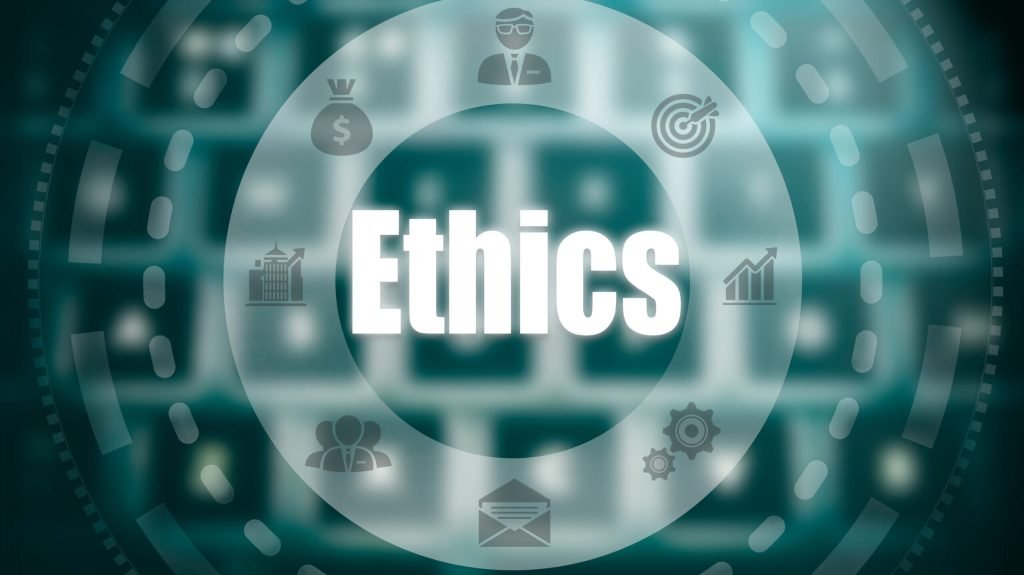At a time when government transparency and accountability are more important than ever, the proposed overhaul of the Ethics Commission is not just a setback. It is a leap into the abyss of opacity and potential corruption.
Established in 1973 as an impartial watchdog against abuses of public office, the Ethics Commission has at times served as the only state agency holding public officials to account. However, current legislative proposals to rewrite ethics law represent an alarming departure from this pursuit.
The 2018 Code of Ethics Revision Committee was comprised of a diverse group of stakeholders and wisely refrained from advocating for a complete overhaul. Their recommendations were aimed at improving, not watering down, ethics laws. But the current bill aims to completely repeal and rewrite the law, a move that is completely at odds with previous, more thoughtful proposals.
Shifting responsibility for interpreting abuse of power from the Ethics Commission to the district attorney and attorney general creates fragmented oversight, inconsistency, and potential conflicts of interest. The boundary between criminal and civil aspects is not realistic due to their intricately intertwined nature. Additionally, the diminished role of ethics commissions in providing blanket advice and investigating violations before they are referred to prosecutors has weakened the proactive approach needed to deter corruption.
The proposed bill blurs the lines of ethical conduct. Allowing officials to accept unlimited gifts from vaguely defined “friends,” solicit gifts from subordinates, and expand the definition of family all open the floodgates to conflicts of interest and corruption. Become. Decriminalizing certain acts, relaxing disclosure requirements, and reducing penalties for abuse of power are steps in the wrong direction.
Perhaps most concerning is the bill's provision that would make the Ethics Commission accountable to Parliament, the Constitutional Officer, and the Attorney General. This change fundamentally undermines the Commission's independence and undermines its ability to function as an impartial regulator.
Changes in definitions and classifications regarding abuse of power, gift prohibitions, corrupting influence, conflicts of interest, and revolving door policies have made the current law less robust. These amendments open loopholes for unethical conduct, reduce the severity of penalties, and essentially lower the ethical standards expected of public officials.
The proposed bill would fundamentally change existing ethics laws, raising some concerns about its potential impact on ethical governance and anti-corruption. Below is a breakdown of the changes and their impact on the Code of Ethics.
Changes in responsibility and oversight
Inconsistent enforcement across districts: Delegating oversight to 42 different district attorneys could lead to differing interpretations and applications of the law, leading to a lack of uniformity in the response to ethics violations.
Separation of criminal and civil aspects: Given the often intertwined nature of criminal and civil ethics violations, the practicality of this separation is questionable.
Declining role of ethics committees: Removing the commission's advisory role and investigative powers could create a vacuum in centralized expert guidance on ethics and increase the risk of unintended violations.
Burden on district attorney: Without the commission's involvement, district attorneys may struggle with additional responsibilities, especially in complex cases, which could lead to inadequate enforcement.
Removal of alternative solutions: Eliminating the option of resolving cases with fines can lead to over-reliance on criminal prosecution, which is not always the most effective or appropriate course of action.
Lack of exculpatory evidence disclosure: This inaction could lead to unfair prosecutions and reduced transparency in the judicial process.
Limited whistleblower protection: Limiting protections could deter whistleblowing, an important mechanism for exposing corruption and unethical behavior.
Reducing barriers to corruption
Accepting undefined gifts: The clear definition of a “friend” and the lack of permission for authorities to accept unlimited gifts raises serious concerns about the potential for undue influence and corruption.
Conflict of interest: Expanding the definition of family and reducing conflict of interest safeguards can lead to increased nepotism and favoritism.
Decriminalization and reduction of disclosure: These changes could reduce the accountability of public officials and create an environment in which unethical behavior is more tolerant.
Decreased independence of ethics committees
Making the committee accountable to the legislature or other political authorities could undermine the committee's independence and open the possibility of political interference in ethics oversight.
Fundamental changes to regulations
Use of office for financial gain: A redefinition may narrow or widen the scope of what constitutes abuse of power, depending on the specific changes made.
Gifts prohibited: Changing gift rules could increase the influence of lobbyists and special interests.
Corrupt influence: Requiring contracts or agreements for corruption charges could make it more difficult to prosecute subtle forms of corrupt influence.
Conflict of interest: Changes to these provisions could weaken safeguards against self-dealing and personal enrichment.
Revolving door: Relaxing restrictions on employment after retirement from civil servants could create conflicts of interest or unfair advantage for former civil servants.
incomplete section
Statement of economic interest: Without details of the changes in this section, it is difficult to fully assess the bill's impact in this area.
comprehensive evaluation
The proposed bill would significantly weaken existing ethics laws and oversight mechanisms. This change could lead to increased opportunities for corruption, decreased accountability of public officials, and a potential decline in public trust in government. The bill's departure from the Ethics Code Revision Committee's recommendations also raises concerns about its alignment with best practices in ethical governance.
















